‘Sufism is as deep as the ocean’
Sufi ideology captures the hearts and minds of two foreign researchers
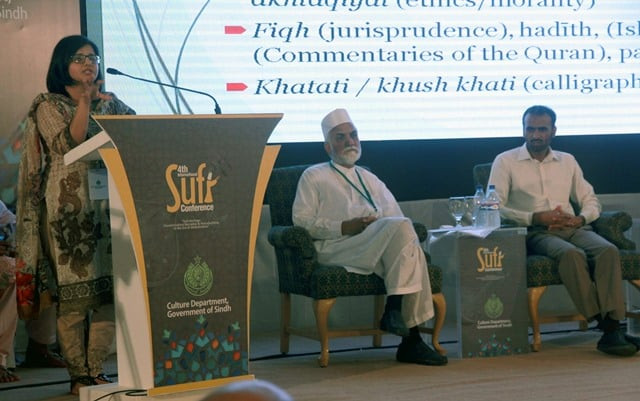
PHOTO: ATHAR KHAN/EXPRESS
She first came to Lahore in 2009 to learn tabla and then decided to enroll herself in Harvard’s PhD programme in 2014. She visited Bhit Shah in the same year and learnt raags under the tutelage of Manthar Faqir Junejo.
Living at her mentor’s house in Bhit Shah since August 2017, Huang considers the town of Bhit Shah a simple place. “I like the feeling of not having too many distractions. You do your work and I feel very focused living there,” she added.
The very interesting thing about Bhitai is that he did not just write poetry but also formulated the whole system of performing his poetry, Huang told The Express Tribune at the fourth International Sufi Conference, while dressed up in traditional Sindhi attire.
According to her, his poetry includes different chapters and each chapter (sur) is on a specific story, for example the stories of her seven heroines such as Sohni, Sassui and Marui. “Each sur was presented in a different way and has its own unique style,” she explained, adding that it is unique among musical systems in the world.
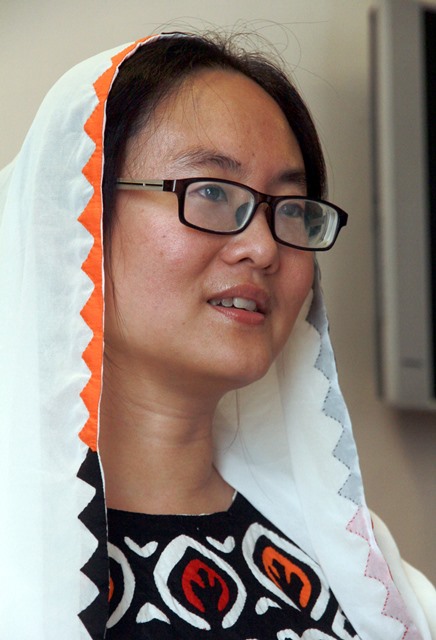 Pei-ling Huang. PHOTO: ATHAR KHAN/EXPRESS
Pei-ling Huang. PHOTO: ATHAR KHAN/EXPRESSThe shrine of Bhittai is uniquely peaceful and gives a serene feeling. According to her, she looks at sufism through musical practices since sufism is ‘as deep as the ocean’. Speaking about how she learnt Urdu and Sindhi, Huang said that she took Urdu courses at Harvard and Sindhi courses in Pune, India.
Having learnt 28 surs of Bhitai’s raag, she has to master three more before leaving for the United States this August as an end to her yearlong field work. She has learnt to perform 55 different ‘wahis’ of Bhitai.
Exploring the culture
Dr Kamila Junik Luniewska, an assistant professor at the department of South Asia at the University of Krakow, Poland, while conversing in Urdu, said that if someone wants to gain knowledge of the culture of a place then they need to learn the language first.
“I can talk in English but that’s a just a surface talk. When I talk in their language [Urdu and Hindi] they open like flowers and keep speaking with more interest,” she explained.
Serving humanity: Sufi teachings key to global peace
After writing her PhD thesis on Hindi Literature, Dr Luniewska said she developed a love for Urdu language as well and teaches both languages to students at her university as well as the visual culture of Pakistan and India.
“I teach about Pakistan and I know a majority of the historical places but unfortunately I haven’t got enough time yet to see them with my own eyes, which creates a reason to visit Pakistan again,” she said.
“I came on foot to Pakistan from India in 2004. I went to Amritsar, caught a rickshaw to the border and crossed to Pakistan for the very first time and visited Lahore and Multan. Later I visited both these cities and Uch Sharif again in 2006 as I had developed love for Sufism,” Dr Luniewska said.
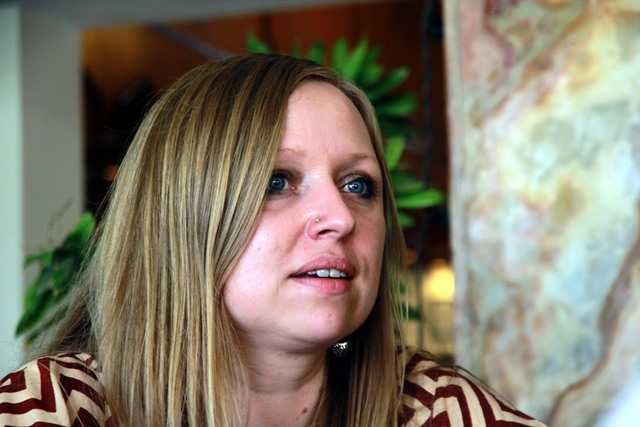 Dr Kamila Junik Luniewska. PHOTO: ATHAR KHAN/EXPRESSLate
Dr Kamila Junik Luniewska. PHOTO: ATHAR KHAN/EXPRESSLateAccording to her, every year up to 30 Polish students enroll in their programme as students are interested in learning about Asia, specifically South Asia’s contemporary issues and conflicts.
“I feel really happy to visit to Karachi, as it’s the cultural hub of Pakistan. Moreover, the people of Sindh are really spiritual, rather than religious, with a lot of tolerance.”
Sufi conference
Both researchers were in Karachi to attend the international sufi conference organised by the culture, tourism and antiquities department. The event concluded on Saturday with recommendations to portray sufi thoughts and its universal tolerant values as the strongest cultural narrative against the extremist ideology. Other recommendations included that sufi cultural heritage should be promoted to counter extremist and intolerant tendencies in society and to create interfaith harmony and pluralism.
Sufi teachings can eliminate extremism: speaker
Other points raised were that sufism should be studied with diverse theoretical and methodological inter-disciplinary approaches, an endowment fund should be established to financially help students, faculty and researchers to carry out new research on Sufi cultural heritage, efforts should be made to hold seminars or workshops on sufism and sufi museums should be established to showcase the sufi cultural heritage of Sindh.
Speakers also raised points that sufi cultural heritage should be promoted through various cultural expressions like music, literature, drama, theatre and films.

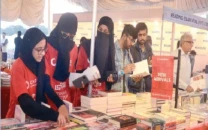


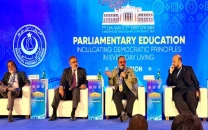














COMMENTS
Comments are moderated and generally will be posted if they are on-topic and not abusive.
For more information, please see our Comments FAQ